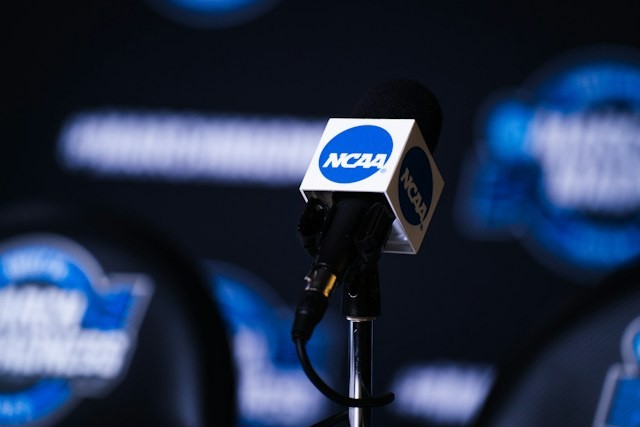A significant tide has turned in the realm of college athletics. In a dramatic move, the Biden administration has put its weight behind a bipartisan lawsuit. The legal action aims squarely at the NCAA's control over college athletes. A complex web binds this story, encircling the Justice Department, the NCAA, and college athletes. The angle? A legal charge against restrictive transfer rules imposed by the NCAA on the athletes.

What's the Bone of Contention?
At the heart of the issue are the eligibility restrictions on transferring athletes. These regulations incrementally strangle the mobility of student-athletes. The DOE argues that these rules hinder their academic and professional development. This lawsuit represents the first instance of the federal government opting into a case spearheaded by the states in solidarity against the NCAA's transfer restrictions.
The Justice Department's interest in NCAA practices is by no means recent. Antitrust prosecutors have frequently circled the NCAA's controversial policies. Their actions even extend to supporting the rights of college athletes in a private capacity. Such engagement was evidenced in the amicus briefs filed in sync with the recent U.S. Supreme Court decision. This led to a significant relaxation of compensation curbs for these athletes.
Will the Storm Avert the NCAA's Transfer Rule?
The core focus of the joint lawsuit DOJ is a controversial rule. It stipulates an imposed delay on college athletes' eligibility to transfer for the second time. The rule implies immediate eligibility after the first transfer but a year's hiatus after the second. The NCAA, caught in this maelstrom, has refrained from commenting on the administration's intervention.
Earlier this week, the NCAA announced it had agreed to prolong a temporary restraining order against the transfer rule until the end of the current season. This deal allows multiple-transfer athletes to compete on the same level as other students.
Is an Antitrust Exemption in the Offing?
On the same day the Justice Department joined the lawsuit, a polarizing proposal emerged that sought to hand over an exemption from federal antitrust laws to college sports officials. Isn't that a piquant coincidence? Critics of the transfer rule argue that it mirrors a "no-poach" agreement between horizontal competitor member schools serving to allocate the market for NCAA Division I college athletes' labor. Critics assert that this rule denies athletes the right and the ability to boost their welfare as they deem fit.
ALSO READ : SEC's Regulations Challenged as Judge Grills Coinbase, SEC on Digital Assets Classification
What Does the Future Hold?
Rep. Gus Bilirakis recently unveiled a discussion draft, promising critical provisions that the NCAA seeks for its defense. Among them is creating a federally appointed panel to enforce national rules on publicity rights deals. Other measures include barring athletes from classification as employees and ensuring legal protection for the NCAA and its members. However, these comprehensive measures might face an uphill battle in securing bipartisan approval.
Rep. Lori Trahan stated candidly that there was a "wide gap" between the House and Senate lawmakers and conceded a bleak outlook for this session in attaining an antitrust exemption. Such thorny, contentious issues aren't likely to be resolved swiftly or efficiently.
Navigating the Legal Minefield
As this intriguing case unfolds, it underscores the importance of insightful legal intervention and support in navigating such complex scenarios. As implied in this lawsuit and countless others, experienced legal counsel is not just a preference but a necessity. Professional legal guidance can prove crucial for favorable outcomes, whether you are an athlete entangled in transfer rules or an entity grappling with antitrust challenges.




